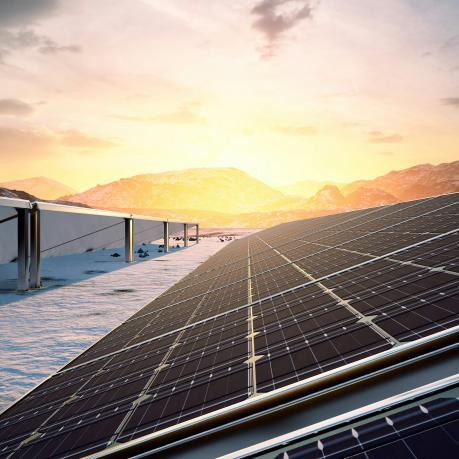
From ambition to implementation: delivering the energy transition and industrial transformation in 2026
Insight by Sandra Ghosh, Susanne Lein
Comment by Christiane Röttger

Today is a day for celebration, or for reflection, depending on your perspective. It is the International Day for Biological Diversity, with this year’s theme being "Be part of the plan". After the so-called Aichi Targets for biodiversity protection were not met in 2020, the Global Biodiversity Framework, adopted by the member states of the Convention on Biological Diversity (CBD) in 2022, is now supposed to do the job. But this time for real.
There is no lack of ambition, goals, and action plans at all levels, and they are urgently needed. Nearly 70 percent of global biodiversity has already been destroyed, up to one million species are threatened with extinction, coral reefs are bleaching one after another, forests and wetlands are shrinking, and more than half of living biomass has already been converted into concrete, infrastructure, and consumer goods.
Destruction and exploitation of ecosystems, pollution and poisoning by plastics, pesticides, fertilisers, chemicals, waste, and e-waste, climate change and alien species—all are normalised collateral damage of our economic system. Our natural world is vanishing, and with it, our ability to recover and regenerate, and to enjoy flowers, trees, animals, lakes, or forests, grow food in fertile soils, extract drinking water from the earth, breathe clean air, or stabilise the climate.
But nobody really seems to care. Conservation ranks low on the priority list of media and politics and faces enormous opposition. The progress of recent years is being undermined and questioned, with conservation increasingly at the centre of a cultural battle, as seen in the debate over the EU Restoration Law. Conservation and restoration are being fought against by all means. Why is that?
The fact is, we could halt the destruction of our life-sustaining biosphere if we truly wanted to: Measures to protect nature are effective, as shown by a recent study published in the journal Science. These measures need to be systematically expanded, strengthened, and adequately funded. At the same time, we need to address the roots of the destruction, which lie in our way of doing business. That’s the crux of the matter.
Unlike climate protection, nature conservation cannot be seamlessly integrated into the dominant technocratic narrative: Climate protection superficially fits into a narrow, technology-focused discourse that does not fundamentally challenge the status quo. As long as the debate revolves mainly around battery systems and engines, no one asks the truly relevant questions. Everything remains the same, just "CO2-neutral."
Nature conservation, on the other hand, does not work that way, at least not easily. While decoupling economic growth from emissions is already questionable, it is impossible from the consumption of nature. Economic growth is essentially synonymous with environmental destruction, consumption equals pollution. Every senseless plastic gadget is based on natural resources. Ecosystems are location-bound; it always involves specific areas and who may or may not use them. This discussion cannot be solved "technologically"; it always involves tangible interests backed by attitudes, values, and socially normalized incentive systems, behaviors, and beliefs.
If we want to protect nature and preserve our livelihoods, we must answer a central question: What is truly important? What if we can’t actually have everything, if we had to choose? Clean drinking water for people or water resources for the auto industry? Forest or industrial area? Pesticides or birds? Highways or fertile soil? Industrial meat or rainforests? Quality or quantity? Burnout in a bullshit job or time and appreciation for oneself, friendships, family, and nature?
Only with an explicit clarification of our priorities can we lay the foundation for a constructive discussion about real solutions and compromises. What significance, what value does an intact nature and a stable climate have for us? We should discuss this instead of getting lost in a narrow technology debate, even if it means questioning existing power structures and privileges.
However, we are still far from that. Despite the nice rhetoric on Biodiversity Day, what we are actually witnessing is a politically and economically driven, systematic transformation of all living things into "bankable assets," from which a few profit enormously. Nothing is safe from the insatiable hunger for more, neither the vulnerable deep sea, the partially uncontacted indigenous peoples of India (or Indonesia), nor the people who have to toil under near-slave conditions in the meat and fish industries.
We could change this. We don’t need to wait for ecological collapse to force us to rethink. Individually and as a society, we always have the choice to stop the hamster wheel and take a closer look at the old, outdated mantras of "that’s how it’s always been," "that’s just how the world works," or "there’s no other way": Is that really still true? Now is the time to pause and have the courage to fundamentally question and rethink things, to step out of our comfort zone and, with humour, creativity, and a sense of adventure, create something better.